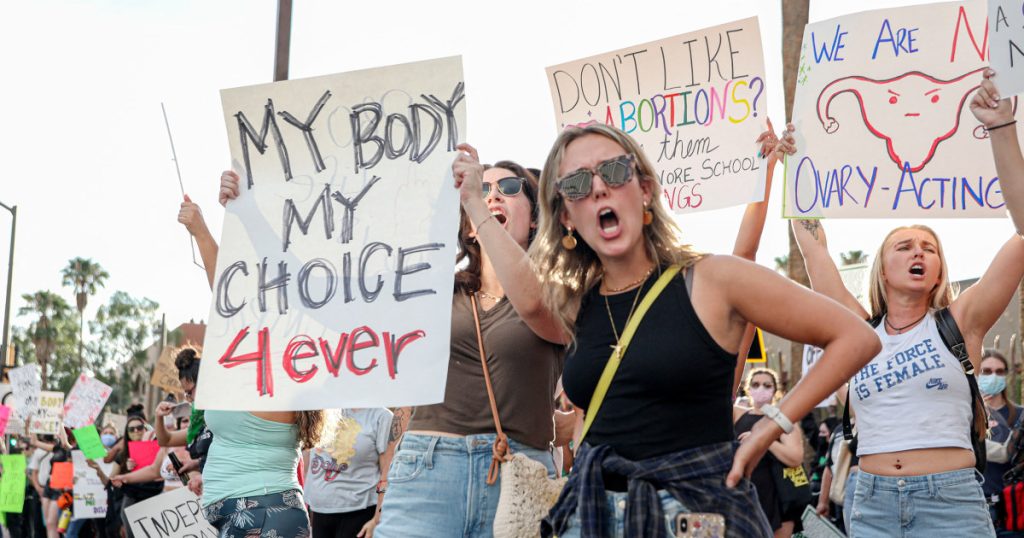The Arizona Supreme Court made a significant ruling on Tuesday, declaring that a 160-year-old near-total abortion ban in the state is enforceable. This decision adds Arizona to the list of places where abortion care is effectively restricted. The 1864 law criminalized abortion, making it a felony punishable by two to five years in prison for anyone involved in performing or assisting a woman in obtaining an abortion. The law, which also had exceptions to save the woman’s life, was codified in 1901 and 1913, and has remained in effect despite never being formally repealed.
The Civil War-era abortion ban had not been challenged until recently, leading to confusion in Arizona regarding its enforcement and how it related to modern abortion laws. The appellate court ruled last year that the 1864 law could remain on the books if it was “harmonized” with current laws, but this decision sparked debate and uncertainty about when exactly during a pregnancy abortion would be considered illegal in the state. This ruling by the Arizona Supreme Court clarifies the status of the near-total abortion ban and confirms that it is still applicable, reaffirming the state’s restrictive stance on abortion care.
The enforcement of this 160-year-old abortion ban has significant implications for reproductive rights in Arizona, as it effectively limits access to safe and legal abortion procedures. Women seeking abortion care in the state now face the threat of criminal penalties for themselves and anyone assisting them in obtaining an abortion. This decision could lead to increased barriers to reproductive healthcare and force individuals to seek out dangerous alternatives if they are unable to access safe and legal abortion services.
Pro-choice advocates and reproductive health organizations have expressed concern over the impact of this ruling on women’s rights and access to healthcare in Arizona. They argue that the near-total abortion ban is unconstitutional and violates individuals’ right to make decisions about their own bodies. The decision by the Arizona Supreme Court to uphold this outdated law sets a dangerous precedent for reproductive rights in the state and could have far-reaching consequences for women and families seeking abortion care.
The ruling by the Arizona Supreme Court adds to the ongoing national debate over abortion rights and access, with states across the country passing increasingly restrictive laws in recent years. This decision highlights the importance of state-level legislation and judicial rulings in shaping reproductive healthcare policy and underscores the need for ongoing advocacy and support for abortion rights. The enforcement of this 160-year-old near-total abortion ban in Arizona further underscores the challenges faced by individuals seeking abortion care and the urgent need for continued efforts to protect and expand access to safe and legal reproductive healthcare services.
Overall, the ruling by the Arizona Supreme Court upholding the 160-year-old near-total abortion ban underscores the ongoing battle over reproductive rights and access to abortion care in the state and across the country. This decision has significant implications for women’s healthcare and underscores the need for continued advocacy and support for abortion rights. The enforcement of this outdated law in Arizona highlights the challenges faced by individuals seeking abortion care and the importance of protecting and expanding access to safe and legal reproductive healthcare services.


